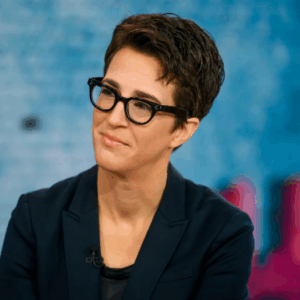Chris Hayes Finds New Reasons to Be Optimistic Again

In a recent segment of his MSNBC show “All In,” journalist Chris Hayes reflected on the evolving landscape of the COVID-19 pandemic and the moments of hope that have surfaced amidst the challenges. Having spent a year providing thorough coverage, Hayes initially approached the crisis with a tone of urgency and concern, warning viewers about the pandemic’s potentially devastating implications. However, as the nation grapples with new developments, Hayes has found renewed reasons to feel optimistic.
Remarkable Progress in Vaccination Efforts
One of the primary areas fueling Hayes’s newfound optimism is the swift development and distribution of COVID-19 vaccines. He noted that the speed at which these vaccines were created represents a monumental achievement for the scientific community. With numerous vaccines now authorized for emergency use, millions of individuals across the United States have already received their doses, a significant milestone in the fight against the virus.
Hayes highlighted the current administration’s proactive approach to vaccine distribution, which plays a crucial role in combating the pandemic. Unlike previous strategies that often shifted the burden to individual states, the cooperative efforts led at a federal level have streamlined the vaccination process. This has been evident in vaccination sites popping up across the country, making immunization more accessible for many who might otherwise struggle to receive it.
Balancing Our Coverage with Hope and Reality
As Hayes continues to provide updates on the pandemic, he has emphasized the challenge of balancing ongoing coverage with emerging stories. He believes it is essential to strike a tone of cautious optimism without downplaying the seriousness of the ongoing fight against COVID-19. Every day, the headlines still feature stories of new deaths, variants, and the continued strain on our public health infrastructure. Moreover, he remains committed to accurately portraying the dual realities of hope with the vaccine rollout alongside the sobering statistics of the pandemic’s toll.

Reflecting on his journey as a journalist through this crisis, Hayes acknowledged the importance of learning from the past year. He pointed out that the pandemic has underscored crucial lessons about governmental preparedness and the necessary investment in public health systems. Ideally, the challenges faced during this crisis will inform better preparedness for future health emergencies. He encourages the public to remain engaged and informed, as vigilance is crucial to ensure continued success in overcoming this pandemic.
Personal Reflections and Future Outlook
On a personal note, Hayes shared insights about the emotional toll the pandemic has taken on him and his audience. The grim reality of reporting on themes of death and suffering has been incredibly challenging, yet it also reinforces his commitment to communicate these realities effectively. Recognizing the emotional burden of such topics, he aims to foster understanding and empathy among viewers while inspiring hope for recovery.
Looking ahead, Hayes cultivates a sense of optimism as warmer months approach. With the ongoing vaccination efforts, he envisions a potential return to more conventional social interactions and activities. The idea of gathering safely with friends and family presents a much-needed reprieve from the isolation many have experienced over the past year. As Hayes discusses this transition, he remains dedicated to providing thorough reporting and insightful commentary to help navigate the complexities of this ever-evolving situation.
In conclusion, Chris Hayes’s reflections on the COVID-19 pandemic highlight both the progress made and the challenges that persist. His commitment to covering these stories with a balance of caution and optimism underscores the importance of staying informed and engaged as society works toward recovery. For those wanting to stay updated, now is the perfect time to follow the latest news and analyses related to the pandemic and discover ways to contribute to community resilience.









